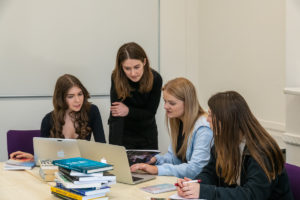Course overview
The programme offers informed, critical and innovative approaches to the study of contemporary culture and media. You will study media and communications within their wider cultural context, preparing you to engage with the cultural sector and for careers in the cultural, arts and heritage industries. The programme also offers strong foundations for those wishing to pursue postgraduate studies in a wide range of fields.
On this course, media are not understood in isolation as channels for communication, but as practices embedded in institutions and in everyday experience. Because studying contemporary culture and media requires you to become familiar with a range of theories and methods, we introduce you to critical concepts and perspectives drawn from cultural studies, film and media studies, social and visual anthropology, sociology, cultural history, the visual arts, cultural geography and more. You can add to these interdisciplinary perspectives by choosing optional classes or modules from across the Department and Faculty.







